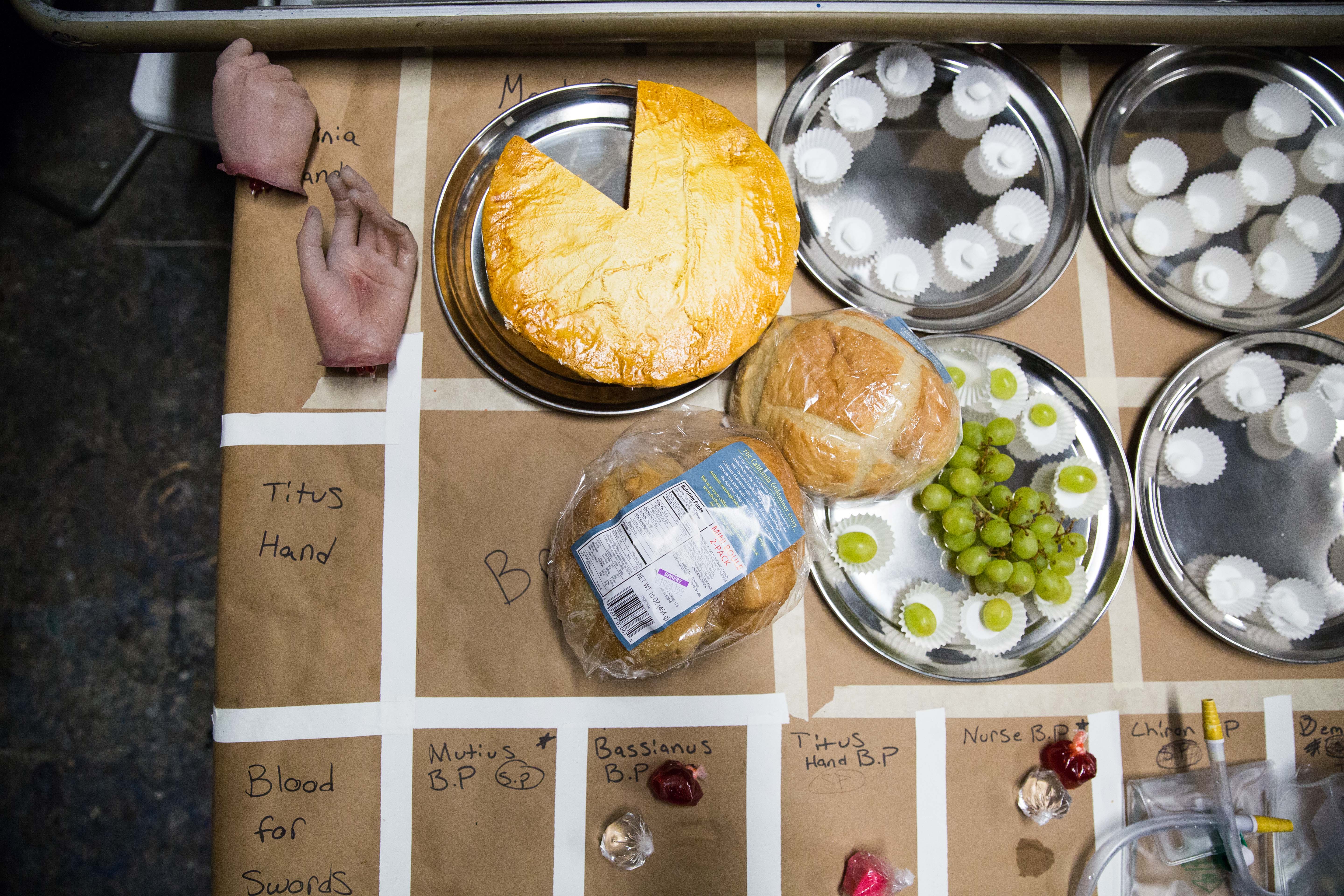It might be best to see this Herberger Institute play on an empty stomach.
Shakespeare’s “Titus Andronicus” features a pair of severed heads, three chopped-off hands, a sliced tongue, multiple murders and a human meat pie offered up as a dish best served cold — also, there’s candy.
Throughout the play, actors will break the fourth wall by serving small portions of food and drink to audience members to correspond with what’s happening on stage.
“For instance, when the actors are celebrating with wine, the audience will have a sparkling grape beverage,” said Kristin Hunt, the show’s director. “And the box of candy is attuned to Roman classic flavors to give the audience a taste of their world.”
Hunt, bringing Shakespeare to the ASU stage for the first time in a decade, believes the timing is right to give "Titus" new consideration.
“It’s relevant to today’s politically charged climate,” said the assistant professor in ASU's School of Film, Dance and TheatreA school within the Herberger Institute of Design and the Arts.. “Some of the characters in the play are dealing with trying to define their nation through establishing who’s a patriot, who’s a real citizen, who’s an outsider and who’s a threat. It’s very complicated.”
The food and drink are being incorporated as a design element to further engage the audience, Hunt said.
Written in the late 1500s, “Titus” is set in the latter days of the Roman Empire and is known as Shakespeare’s first tragedy. Over the centuries, it fell out of favor and was considered distasteful for its graphic violence, which includes rape.
“Titus” found a new audience in the 1960s as the nation experienced political upheaval and social unrest, but it has yet to find a revival in the following decades.
The play tells the story of a Titus, a Roman general whose unyielding patriotism draws him into a bloody cycle of revenge that is simultaneously graphic, poetic, comic and bizarre.

A table full of props for actors, offerings of food for the audience, and a smattering of blood packets await use prior to Tuesday evening's dress rehearsal. Photo by Deanna Dent/ASU Now
The 80-minute, multi-sensory production starts Friday at Tempe’s Lyceum Theatre and runs through Feb. 26. For more event information, including a link to buy tickets, click here for the ASU Events listing.
Top photo: Director Kristin Hunt gives direction to Lavinia onstage as students rehearse the play "Titus Andronicus" at the Lyceum Theatre on ASU's Tempe campus on Feb. 14. Photo by Deanna Dent/ASU Now
More Arts, humanities and education

ASU graduate education programs are again ranked among best
Arizona State University’s Mary Lou Fulton College for Teaching and Learning Innovation continues to be one of the best graduate colleges of education in the United States, according to the…
ASU FIDM students to see their designs on the runway at Uncertainty Fashion Showcase
Nola Hill is perfecting every stitch of her fashion design collection, which she started conceptualizing last summer.She is among 30 ASU FIDM fashion design students who have been working late into…

ASU+GSV Summit brings experts together to discuss innovation in education
This week, Arizona State University President Michael Crow and other university leadership joined education and learning experts from around the globe at the ASU+GSV education technology summit in…


